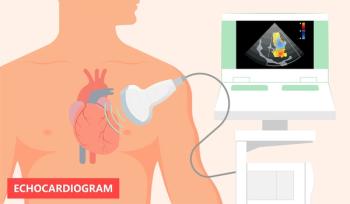
Identifying Predictors of Mortality for Adults With PAH, CHD
A recent study sought to examine the course of these patients after the age of 40, and to identify possible risk factors for a worse prognosis.
There has been an increase in life expectancy for individuals with congenital heart disease (CHD), including both simple defects as well as more complex ones, with the median age now at 40 years.
While patients with both CHD and
Data regarding these older patients are limited, said the authors, writing in the
The retrospective, single-center study in Germany included all patients with a diagnosis of PAH-CHD under follow-up at a cardiology center who were 40 years of age or older at any point between January 2005 and December 2018. The primary endpoint was all-cause mortality.
The diagnosis was established and confirmed by echocardiography, cardiac MRI, and/or cardiac catheterization.
Underlying CHD was classified as follows:
- Shunt lesions—atrial septal defects (ASD), ventricular septal defects (VSD), atrioventricular septal defects (AVSD), persistent ductus arteriosus, aortopulmonary window
- Complex—PAH associated with complex CHD, eg, transposition of the great arteries after atrial switch surgery with remaining VSD or univentricular hearts
- Segmental—PAH due to major aorto-pulmonary collateral arteries, according to recently proposed criteria
Left and right ventricular systolic function was graded semi-quantitatively as normal, or mildly, moderately or severely impaired. Arrhythmias included any type of supraventricular or ventricular arrhythmia requiring treatment.
The study included 65 patients (67.7% female, mean age 45.19 [6.75] years); of these, 46 (70.8%) had a shunt lesion; 12 (18.5%) had PAH associated with complex congenital heart defects; 7 (10.8%) had segmental pulmonary hypertension due to major aorto-pulmonary collaterals. Down syndrome was present in 13 patients (20.0%).
During a median follow-up of 4.2 years (interquartile range [IQR] 1.2-7.5), 16 patients (24.6%) died; 3 were from cardiac causes; 1 from respiratory failure; 1 from a cerebrovascular accident; and 11 from unknown causes.
About one-third of the patients required unplanned/emergency hospital admissions.
On univariate analysis, NT-proBNP (log), creatinine, and a previous history of ventricular arrhythmias were predictors of all-cause mortality.
Upon multivariate analysis, only NT-proBNP (log) (HR, 4.1; 95% CI, 1.2-14.4, P = .029) and creatinine (HR, 16.3; 95% CI, 2.2-118.7; P = .006) remained as independent predictors of all-cause mortality.
The study had several limitations, including a small sample size, the retrospective nature of the work, and some missing variables, such as cause of death for 11 patients and results from the 6-minute walk test.
"Close surveillance, including regular blood analysis, is necessary to identify patients at risk," the authors concluded.
Reference
Maurer SJ, Stöckemann K, Pujol C, Hörer J, Ewert P, Tutarel O. Pulmonary arterial hypertension associated with congenital heart disease in adults over the age of 40 years. J. Clin. Med. 2020; 9(12), 4071. doi:10.3390/jcm9124071
Newsletter
Stay ahead of policy, cost, and value—subscribe to AJMC for expert insights at the intersection of clinical care and health economics.








